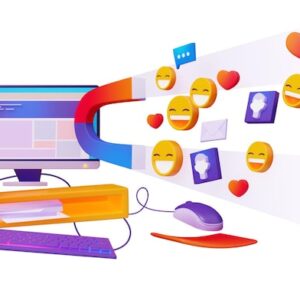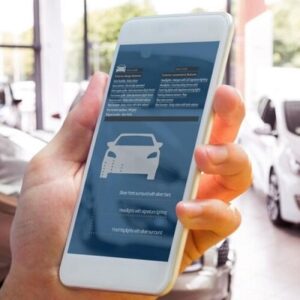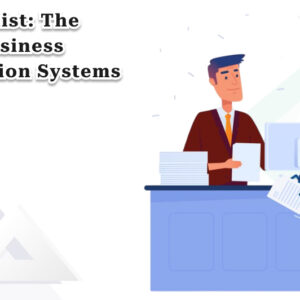The delivery economy has undergone significant change, with 2025 representing a turning point. Businesses are moving away from off-the-shelf delivery platforms and toward custom delivery software solutions due to rising customer expectations, increased competition, and the development of AI and automation.
Whether you are an e-commerce startup, restaurant chain, retail brand, or logistics company, creating a custom delivery app gives you command over your operations, long-term growth, and customer experience. In this blog, we’ll explore why businesses across industries are investing in custom delivery apps in 2025—and what benefits they’re seeing in return.
1. One Size No Longer Fits All
Pre-built delivery platforms may offer convenience, but they come with limitations. Most businesses in 2025 need:
- Specialized workflows
- Custom pricing models
- Advanced integrations (ERP, CRM, POS, AI)
- Personalized customer experiences
Custom delivery apps are tailored to fit unique operational needs, helping businesses avoid constraints imposed by generic solutions.
2. Rising Customer Expectations for Speed & Personalization
Today’s consumers expect:
- Real-time tracking
- Accurate delivery ETAs
- Personalized promotions
- Easy in-app communication
Custom apps let brands offer tailored experiences that go far beyond what white-label or aggregator platforms can provide. In a crowded market, personalization is a critical competitive advantage.
3. Full Ownership and Brand Control
When using third-party platforms, businesses often lose control over:
- Brand identity
- Customer data
- Pricing and commission structures
- Customer engagement strategies
Custom apps restore that control. They allow you to create a fully branded experience, manage your customer relationships directly, and maintain complete visibility across operations.
4. Data-Driven Decisions with First-Party Analytics
In 2025, data is gold, and third-party delivery services often limit access to crucial customer insights. A custom delivery app provides:
- First-party data access
- Behavior tracking and user segmentation
- Real-time operational metrics
- AI-powered analytics dashboards
This data enables businesses to make faster, smarter, and more personalized decisions.
5. Seamless Integration with Internal Systems
From inventory management to logistics and customer service, a custom app can integrate seamlessly with your internal tools:
- ERP & CRM platforms
- Warehouse systems
- Loyalty programs
- Payment gateways
- Fleet management tools
This ensures streamlined operations and minimizes manual effort and human error.
6. Support for Advanced Technologies
Modern delivery apps are no longer just about logistics—they’re powered by advanced technologies like:
- Artificial Intelligence (AI): Smart routing, chatbots, demand forecasting
- Machine Learning: Customer behavior prediction and personalization
- Geofencing & IoT: Proximity-based alerts and delivery automation
- Blockchain: Secure, transparent delivery and payment records
Custom delivery apps allow businesses to build these technologies into their architecture, offering innovation and agility from day one.
7. Flexibility to Scale as You Grow
Off-the-shelf solutions often charge high commissions, limit scalability, or require expensive upgrades. Custom-built delivery apps are:
- Scalable by design
- Built on cloud infrastructure
- Optimized for evolving traffic, orders, and geographic expansion
In 2025’s fast-moving environment, the ability to scale efficiently is crucial to long-term success.
8. Cost Efficiency Over Time
While initial development costs may be higher, custom delivery apps typically offer better long-term ROI:
- No recurring platform fees or commissions
- Lower dependency on third-party aggregators
- Higher customer retention and loyalty
- Automated processes that reduce manual labor
Over time, businesses recoup their investment while gaining higher margins and operational independence.
9. Enhanced Security & Compliance
With rising concerns around data privacy and industry regulations (like GDPR, HIPAA, and regional mandates), custom apps provide:
- Custom security protocols
- Full compliance with local laws
- End-to-end encryption
- Control over where and how data is stored
This ensures both legal compliance and customer trust.
10. Competitive Differentiation
In 2025, standing out in the crowded delivery space requires innovation and customization. A custom app allows businesses to:
- Launch features ahead of competitors
- Pivot quickly based on customer feedback
- Create unique delivery experiences
- Build long-term customer loyalty
You’re not limited by someone else’s roadmap—you set the standard.
Use Cases Across Industries
Custom delivery apps are being widely adopted across sectors:
- Restaurants & Cloud Kitchens: Branded food delivery apps with loyalty features
- Retail & E-Commerce: End-to-end product delivery with AI-powered recommendations
- Grocery & Pharmacy: Scheduled deliveries with real-time stock and driver tracking
- Logistics & Courier Services: Advanced dispatching, fleet tracking, and multi-stop deliveries
- B2B Enterprises: Internal delivery networks for inventory movement, maintenance, or inter-store logistics
Conclusion: The Future Is Custom
By 2025, the conversation around delivery apps has drastically shifted. Businesses are no longer debating whether to adopt these digital solutions—the question now is how fast they can move to implement them. While generic, off-the-shelf platforms were once considered adequate, they’re increasingly being outpaced by the strategic advantages of custom-built delivery apps. Companies are now recognizing that to truly stand out in a saturated market, they need solutions tailored to their unique workflows, customer needs, and growth ambitions.
Custom delivery apps are no longer seen as a luxury, but a catalyst for performance, profitability, and brand loyalty. They allow for deeper integration with existing systems, better user experiences, enhanced security, and complete ownership over features and data. With customer expectations rising and competition heating up, speed, flexibility, and personalization have become critical factors in digital success.
The brands that are leading the charge in 2025 are those who have moved beyond the limitations of generic platforms and invested in custom delivery ecosystems that scale with them. It’s not about if anymore—it’s about how fast you can innovate, iterate, and lead.




